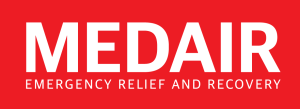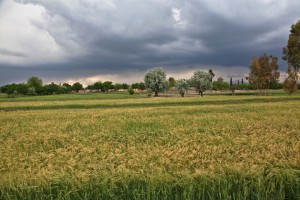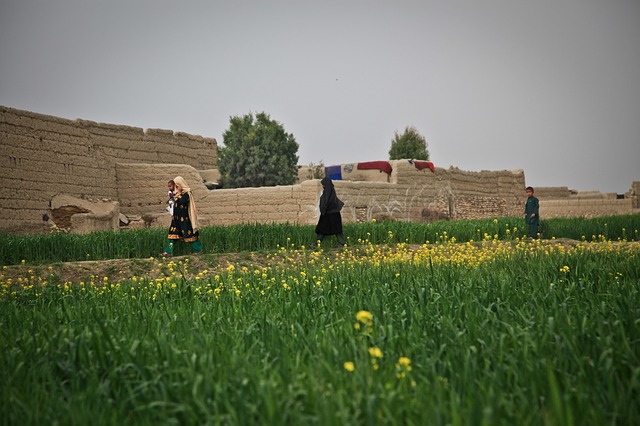 Working in some of the world’s most isolated and distressed regions, the international non-governmental organization Medair delivers emergency relief and recovery assistance to help at-risk communities survive crisis situations and secure their future well-being. Since its incorporation in 1989, Medair has undertaken humanitarian efforts in more than 30 countries, with active programs in 12 nations in Asia, Africa, and the Middle East. Medair operates independently, helping all people in need regardless of their ethnicity, national affiliation, or religious belief.
Working in some of the world’s most isolated and distressed regions, the international non-governmental organization Medair delivers emergency relief and recovery assistance to help at-risk communities survive crisis situations and secure their future well-being. Since its incorporation in 1989, Medair has undertaken humanitarian efforts in more than 30 countries, with active programs in 12 nations in Asia, Africa, and the Middle East. Medair operates independently, helping all people in need regardless of their ethnicity, national affiliation, or religious belief.
Focused on strengthening local capacity, Medair staff members to implement field programs in close cooperation with beneficiaries and train local professionals in the skills needed to sustain lasting recovery. Community members maintain an ownership stake in Medair projects by contributing their input during the formation of development plans and taking on much of the work to build new infrastructure. In the long-term, the area residents’ direct participation facilitates the eventual handover of projects to the community.
Medair’s Core Activities in Afghanistan
For the past 20 years, Medair has undertaken humanitarian aid work in Afghanistan, concentrating its efforts in the difficult-to-access Central Highlands region, as well as areas in the south of the country, where persistent armed conflict has displaced many families. People living in these regions face challenges ranging from natural disasters, such as landslides, to nutrient-deficient dietary resources and severe undernourishment. To address these issues, Medair coordinates its activities in Afghanistan around the three central concerns: health and nutrition; water, sanitation, and hygiene; and food security.
Mobile Clinics Relieve Child Malnutrition
 Across rural southern Afghanistan, hundreds of thousands of people who have sought refuge from violence in unofficial settlements experience inconsistent access to food and water. Continuing conflict both impedes families from leaving their homes to procure food and deters many humanitarian organizations from entering the region. Close to half of all child mortality in Afghanistan is due to malnutrition, and child malnutrition rates are the highest in southern part of the country, where the combined factors of instability, cultural restrictions, and poverty, prevent these children from receiving necessary treatment.
Across rural southern Afghanistan, hundreds of thousands of people who have sought refuge from violence in unofficial settlements experience inconsistent access to food and water. Continuing conflict both impedes families from leaving their homes to procure food and deters many humanitarian organizations from entering the region. Close to half of all child mortality in Afghanistan is due to malnutrition, and child malnutrition rates are the highest in southern part of the country, where the combined factors of instability, cultural restrictions, and poverty, prevent these children from receiving necessary treatment.
In 2014, Medair began operating mobile nutrition clinics in southern Afghanistan to treat moderate-to-serious malnutrition among children less than 5 years of age and their mothers. The clinics bring healthcare services to the displaced settlers, thus eliminating the burden and danger of traveling through zones of conflict to distant medical facilities.
After diagnosing children as being malnourished, Medair feeds them a calorie-rich, nutrient-dense paste that promotes weight gain and restored vitality. The mobile nutrition program also includes instruction for families in dietary principles and habits conducive to healthy child development. As of mid-March 2015, the mobile clinics had conducted malnutrition screenings for nearly 11,000 children and provided effective treatment for close to 500 children who were severely malnourished.
Bringing Safe Water Supply to the Central Highlands
Waterborne diseases pose a significant public health hazard in the Central Highlands of Afghanistan, where only one in four people has access to a clean, potable water supply. Often, communities and schools in this region lack sufficient restroom facilities and have limited knowledge of hygienic measures essential for containing the spread of infectious illnesses.
Medair deploys water, sanitation, and hygiene (WASH) teams to isolated areas in the Central Highlands to oversee the construction of wells and other water delivery systems, as well as the installation of toilets and handwashing fountains. Comprised of professionals such as hydrologists and engineers, Medair’s WASH teams train local people to maintain water pumps and help villages form committees responsible for supervising their community’s water resources. Medair also teaches beneficiaries about proper water sourcing and storage techniques, as well as safe waste disposal practices.

